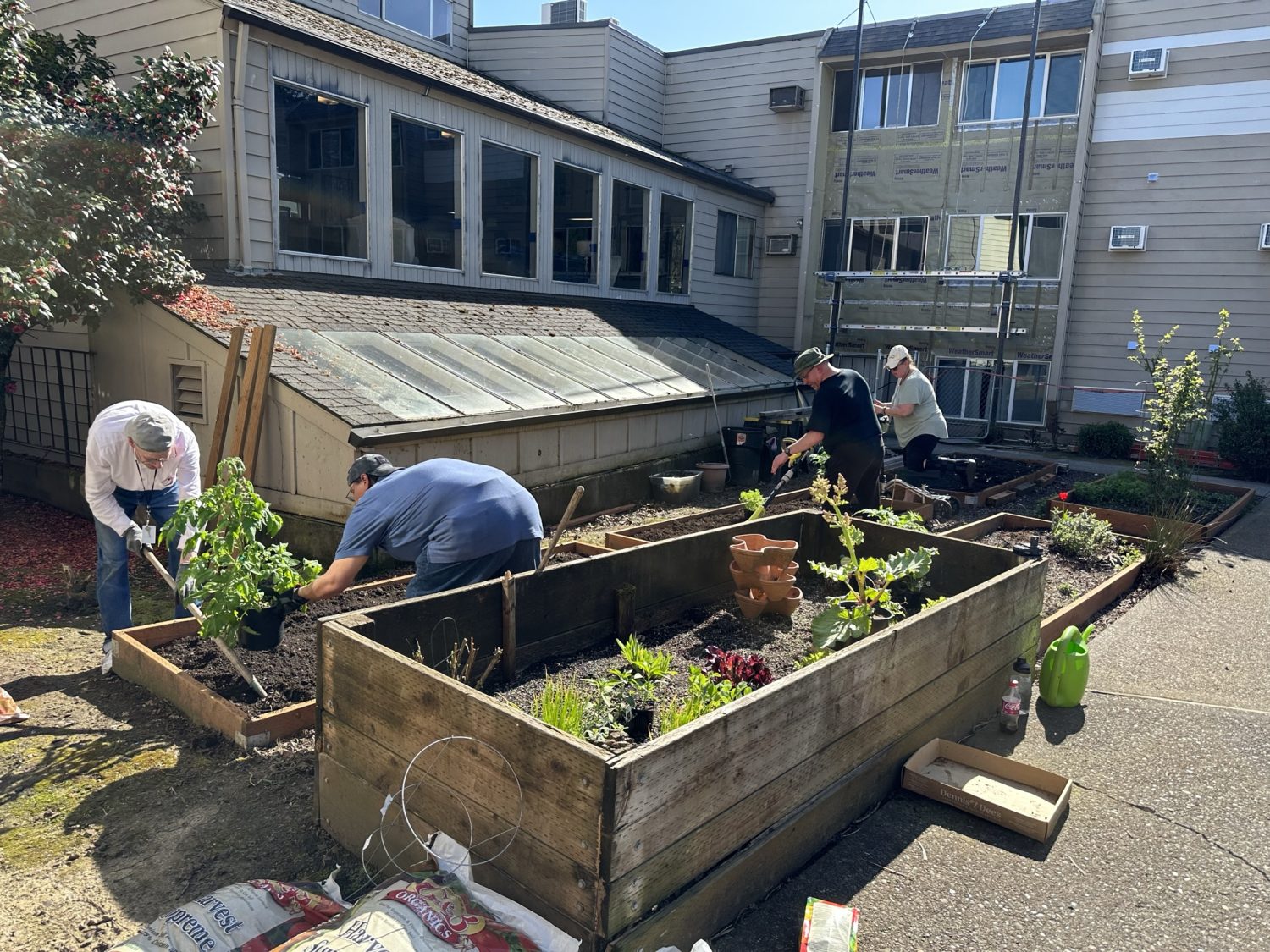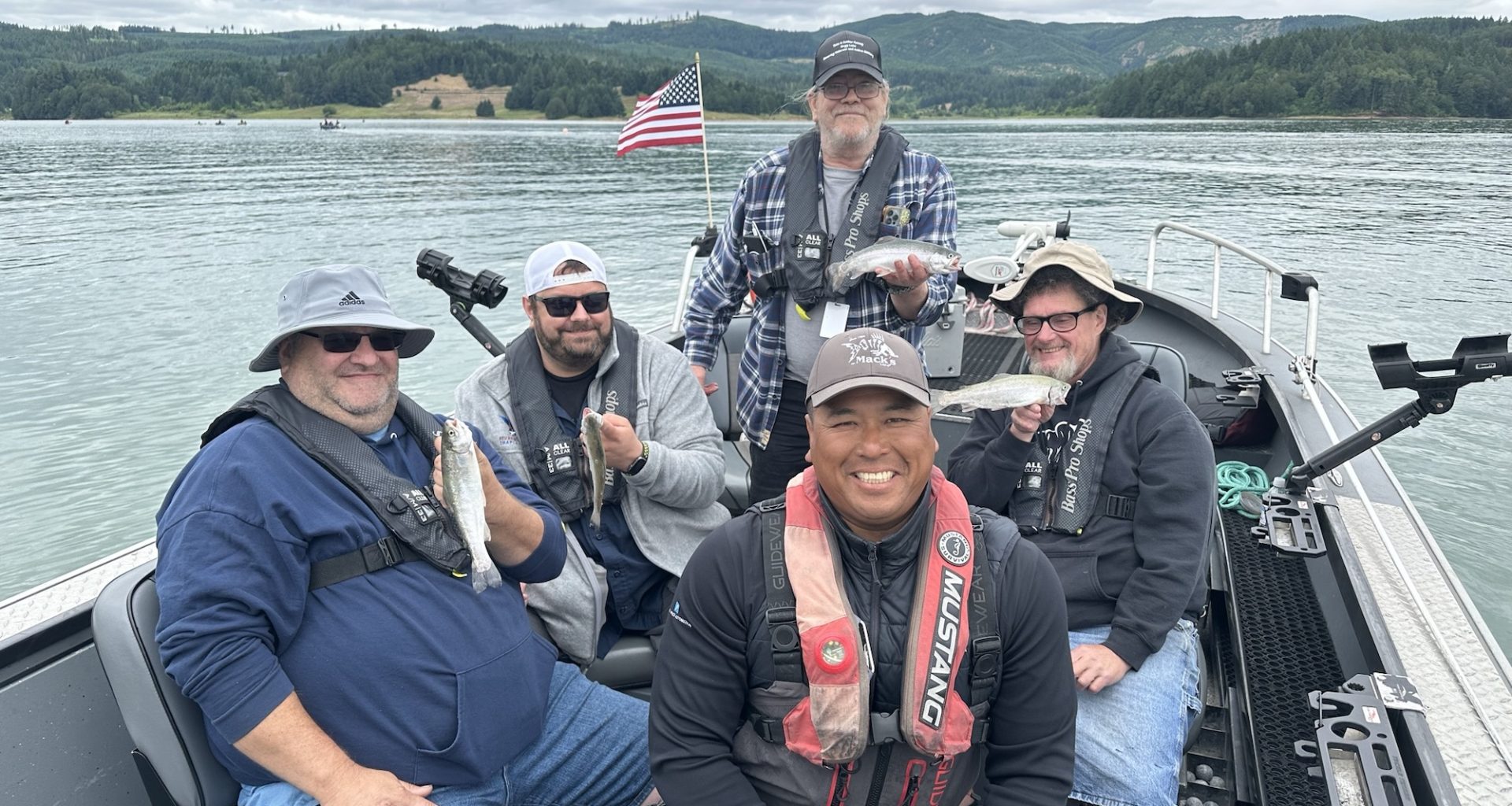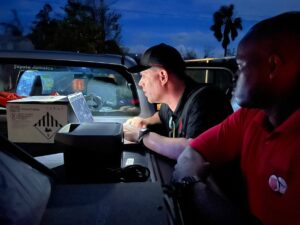The Veterans and Family Center offers alternative methods to promote healing.
According to the Department of Veterans Affairs (VA), seven out of every 100 veterans will have PTSD at some point in their life. For those who served in Iraq, the number rises to 29 percent.
The Salvation Army Veterans and Family Center (VFC) Chaplain Nathan Lyons—an Iraq war veteran—has lived it.
“One thing to keep in mind is that this number is hard to quantify,” Lyons said. “PTSD is not—nor is any trauma—one-size-fits-all.”
He said some people can manage PTSD with medication, meditation or talk therapy. For others, though, it can be paralyzing, leading to addiction, extreme anger, psychosis, and the loss of relationships and jobs—about 70 percent of veterans experiencing homelessness struggle with substance abuse, according to the National Institute on Drug Abuse (NIDA).
But there’s hope.
“Veterans can recover and heal from PTSD and move toward post-traumatic growth,” said Salvation Army Cascade Divisional Social Services Director Melody Moshkowski.
That recovery is the goal at the VFC, located in Beaverton, Oregon. The center provides a therapeutic transitional living program for up to 72 veterans and their families, where caseworkers assess each veteran’s individual needs and support their respective journeys.
Additionally, the center offers alternative therapies that support PTSD recovery through activities that engage both the brain and body—while also being enjoyable.
“One thing to keep in mind is that this number is hard to quantify. PTSD is not—nor is any trauma—one-size-fits-all.”
Captain Nathan Lyons
“Art lessons, music, gardening, hiking and other non-verbal healing approaches are fostering real changes in the brain,” Moshkowski said. “The brain can heal.”
She notes these methods are designed to complement, not replace, traditional treatments like talk therapy and medication.
VFC Executive Director Candace Gracik has introduced a number of new offerings—including yoga and pickleball—as part of a holistic recovery approach. She said PTSD recovery typically involves four stages. The first three focus on mental health treatment, including medication and trauma therapy, guided by medical professionals.
“What I focus on is supporting veterans through stage four,” Gracik said. “By providing a sense of normal life—watching something grow, learning new skills, creating, building and exercising—we help them look forward to living independently and reacclimating to everyday life.”
Lyons, who also serves as the center’s activities coordinator, said some activities are held on-site at the center, while others—like yoga and pickleball—take place offsite. The center partners with several local organizations, including the county VA and nearby businesses, to offer these opportunities.
Gardening is especially popular, he said. The center recently installed new raised gardening beds with fresh soil, along with a greenhouse that enables year-round growing.
“We teach veterans how to grow produce they can use themselves,” Lyons said. “We grow a lot of tomatoes, lettuce, cucumbers and herbs—and then use them in the center’s kitchen.”
Scientific research supports the mental health benefits of gardening.
According to the National Institutes of Health, a microbe found in soil can stimulate serotonin production in the brain, in a way that mimics the effect of antidepressants. Serotonin plays a key role in regulating mood and sleep.
In addition to gardening, the center supports veterans with dogs through its monthly K-9 Calvary Emotional Support Animal (ESA) training program. The class provides obedience training and helps veterans pursue service animal certification.
One of the newer activities offered is hiking—an idea introduced within the past year by a former resident, Christina St. John, an avid hiker. Her goal was to encourage fellow veterans to get outside, whether on local hiking trails or simply walking through nearby neighborhoods—to promote fresh air, movement and a sense of connection.

Although St. John now lives independently, she continues to participate regularly in the VFC hiking group.
“I hike to keep my mind from ruminating about the past,” she said, noting that she appreciates being around other veterans who also live with PTSD. “The group also helps me train for power walking in the National Veterans Golden Age Games. I went last year when they were held in Salt Lake City, Utah.”
While the center doesn’t have a formal way to scientifically measure the effects of these activities, staff members see the impact firsthand.
“It’s not as clear-cut as measuring the effects of a medication,” Lyons said. “But these things are making a difference in the veterans’ recovery.”
He pointed to an annual fishing trip as an example—one of the most anticipated outings among residents.
“They’re out in nature, and they see eagles flying over the boat…it’s just God’s country out there,” he said. “When they come back, they’re on cloud nine. That’s not something a medication can do. That’s not something you get just by talking to someone.
“That’s something only—at least in my opinion—God can do. Being in nature like that, surrounded by the beauty that’s been created for us, you can see the change on their faces. And it doesn’t just last for that moment—it stays with them for weeks, sometimes even months.”
Moshkowski echoed this idea, drawing from her previous work with Samaritan’s Purse, where she also witnessed the healing power of nature and faith.
“At the same time people are being ministered to spiritually—touching the heart of the person, learning who God really is and who we are in him,” she said. “And the healing and redemption that is really available.”
Do Good:
- Imagine we had a good-living modern village with real talk, real stories and real support for being human and hopeful. Join the Hopefuls Collective and find a place of low-pressure, high-encouragement love anytime you need it, whether you know it or not. Get in the group today.












